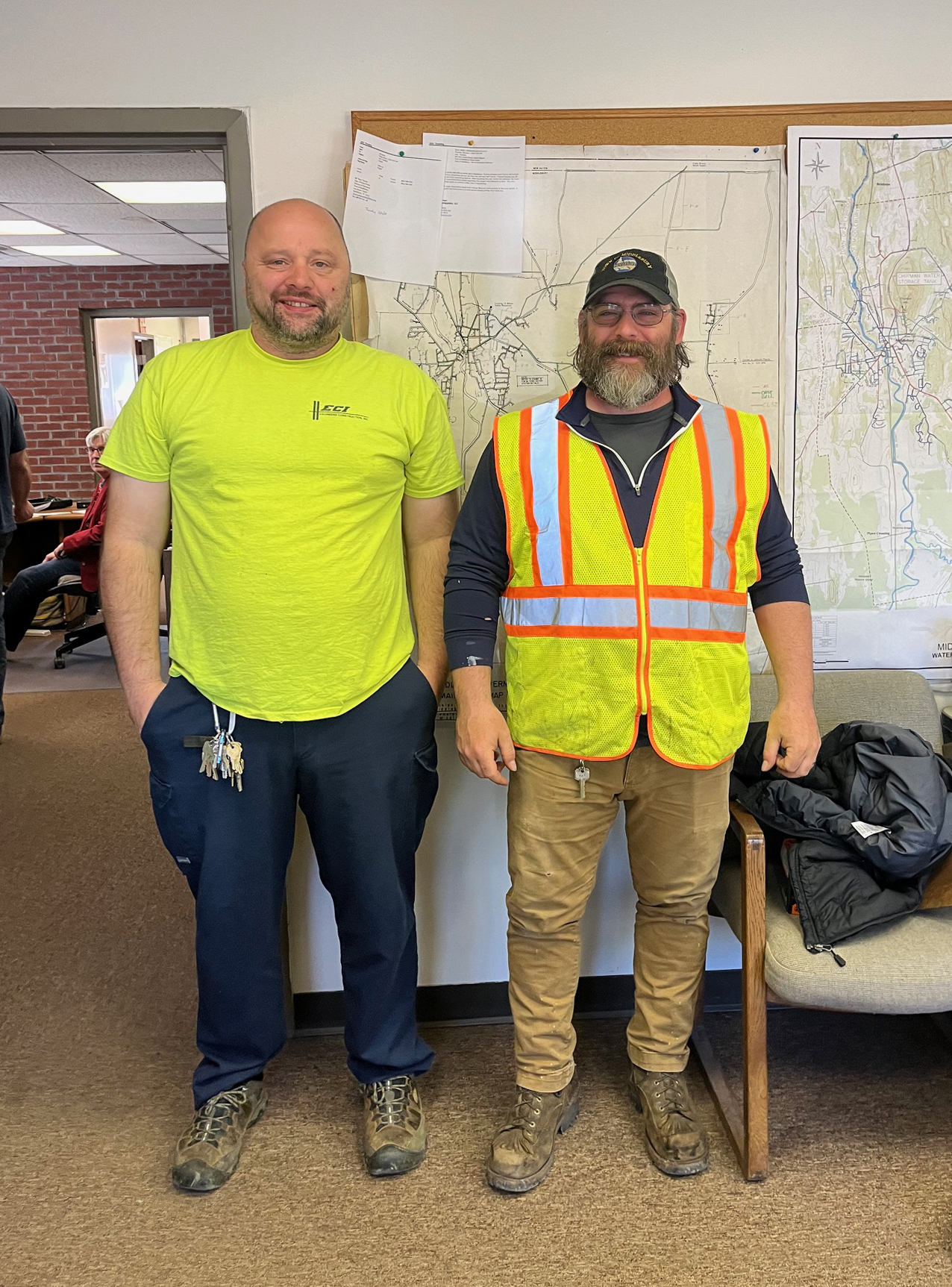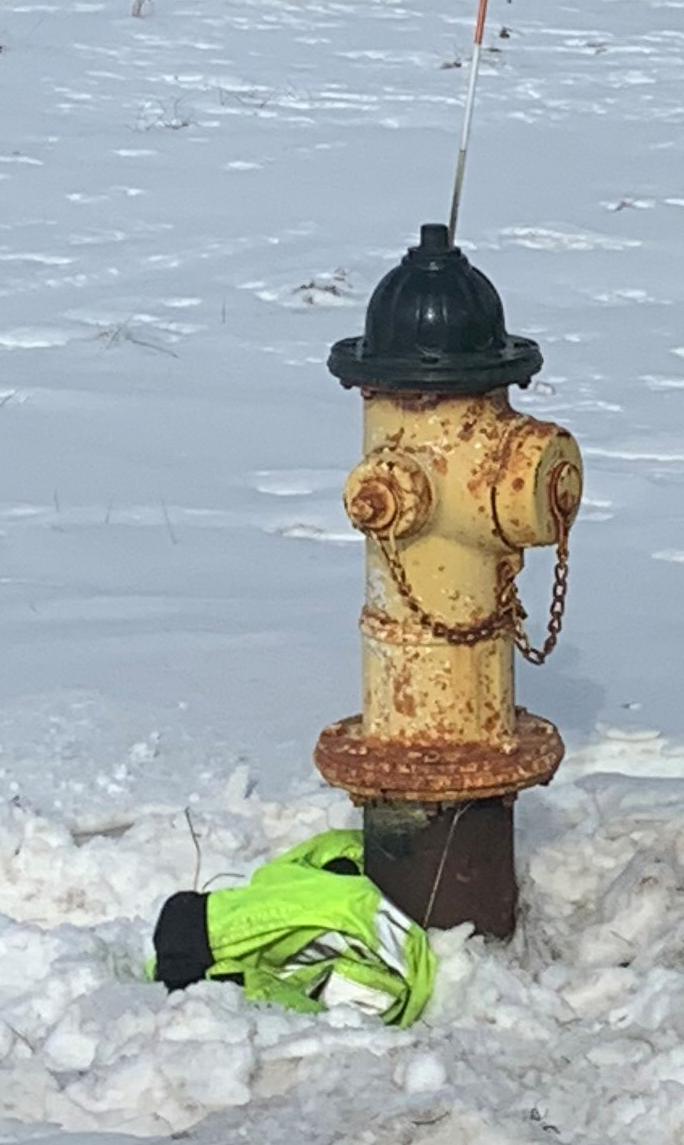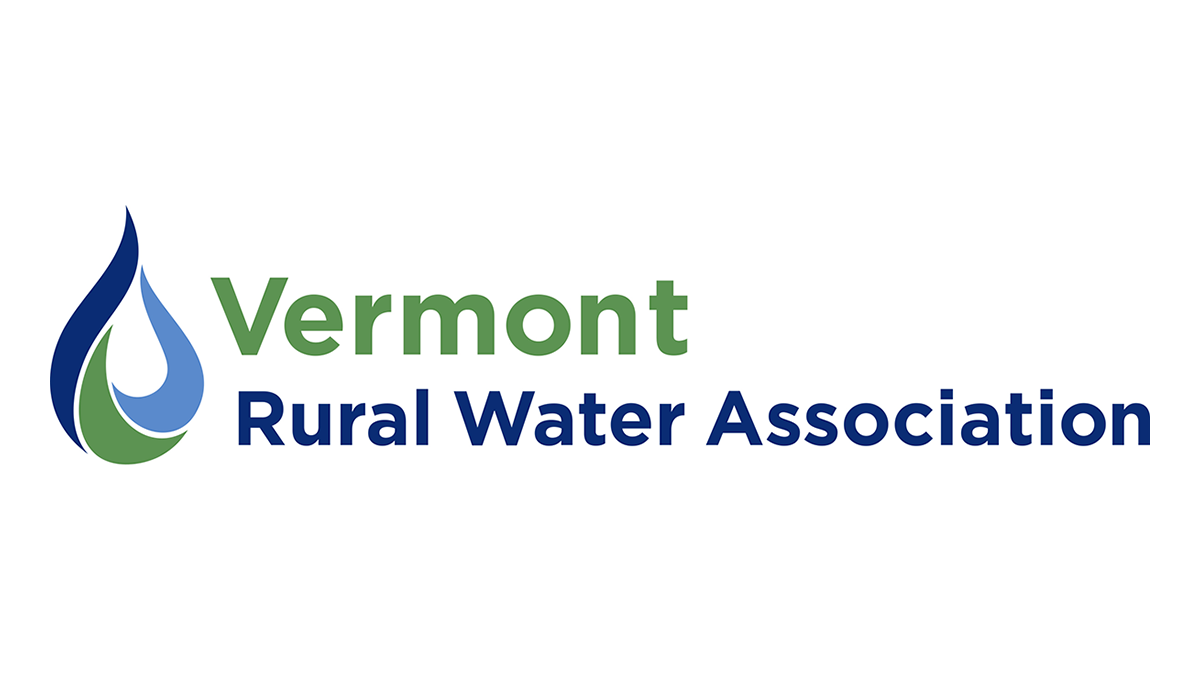by Aaron Perez
This article was published in the summer 2024 issue of our newsletter.
Winters brings its own challenges in Vermont. This winter, Middlebury experienced one worst of the cold weather scenarios a water department can face.
In late January, Vermont had a series of nights with sub-zero weather, which caused a hydrant with water in it to freeze. The freezing water broke the coupling and pressured the operating rod. When the water started to thaw on the morning of January 22, the pressure blew off a large port on the hydrant, causing the hydrant to run wide open for several minutes before slamming shut.
The abrupt shutting caused a massive 200- to 400-psi pressure surge through the system. This “water hammer” caused 33 water leak events throughout the town.

John Trombley (left) and Brian Murray of the Middlebury Water Division.
According to John Trombley, Middlebury’s water division chief, “We had several large and small water transmission main leaks, blown meters and blown out valves as well as three damaged hydrants. As time goes on we are locating several more small leaks.”
While the costs of this large-scale event have not yet been fully totaled, it is safe to assume that the price of parts, labor, and water loss will exceed $1 million.
Middlebury’s water department has only two staff at the moment: John and Brian Murray, an apprentice in Vermont Rural Water’s Apprenticeship Program. As the event unfolded, they realized that the scope of the damage would require extra workers. Fortunately, they have strong relationships with reliable contractors who could be counted on to serve the town well. Vermont Rural Water also sent two staff who spent several days providing leak detection services on the non-emergent leaks.
“At any given time, we were doing as many as five repairs, running as many as three crews at a time,” John said.
Delivering clean water is always an important responsibility for a water system. However, during an extensive emergency like this, the town had to prioritize repairs. “All calls for loss of service are extremely important,” John said, “but during this event we prioritized service to the hospital, then the critical transmission lines to keep water going to the reservoir, and then the individual water services.”

A hydrant in Middlebury.
When we asked John about lessons learned from this event, he emphasized communication. With only two staff, it was very hard to notify up to 200 homes and businesses about changing circumstances during the large scale of multiple events that were happening.
In response, they are now working with the town’s director of operations to set up a texting service to communicate with users more immediately and effectively during emergencies. This not only frees up the team to focus on restoring service, but also gets the message out quickly.
There is no easy way to be ready for massive events like this. However, there were things in place in Middlebury that eased the stress of the event. First, Trombley feels fortunate to be well- supported by the town and the director of operations, who were responsive during the event.
“The best advice I can provide is to maintain good communication with management,” John said. The strong relationship John has with town management improved outreach to the community, engagement with outside contractors for risk assessment, and support from other town departments.
Additionally, during the Covid-19 pandemic, John increased his stock of back-up equipment due to supply chain shortages. Because of this, they were able to do 95 percent of repairs quickly with stock they already had on hand. “Without the added stock that we had, we would have never been able to do the repairs,” John said.

